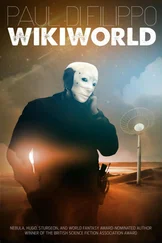It would’ve been nice to explore a little, but Nashville beckoned.
The ticket to Nashville took almost fifty of Amy’s euros, which she exchanged for forty dollars at an ATM in the terminal. She even had a few dollars left over for breakfast at the terminal cafe.
A few hours later, Amy was on her bus, heading east. She had taken what appeared to be the seat with possibly the most congenial companion: an Asian woman not much older than Amy herself. Although conventionally pretty, the woman had chosen to downplay her looks with a lack of makeup, severe hairstyle and drab clothing.
After a dozen miles of mutual silence, the woman turned to Amy and introduced herself in a perky manner.
“Hi, there, my name’s Cindy Lou Hu.”
The woman’s English was excellent, but accented. After Amy volunteered her own name, she asked, “Are you from, like, another country?”
“Yes, of course. Shanghai, China. I’m here to visit Brother Ray’s Gospel Mission in Nashville.”
“Huh?”
Cindy Lou explained that her family had been evangelical Christians for two generations, ever since adopting the creed from American missionaries. Now she was returning to the source of her faith for instruction in spreading the gospel even further.
“Faith is one of your country’s last, best exports. No one sells religion abroad like Faithland. Brother Ray and his peers are everywhere around the world. They might assign me to Latin America or Africa or Mongolia even. It all depends. Wherever I can do the most good bringing the word of Jesus to unbelievers. Are you a believer, Amy?”
Amy began to squirm. This kind of conversation was never encountered in Agnostica. “Uh, well, I guess I’m kind of a, um, secular humanist.”
Cindy Lou’s smile did not waver, but definitely acquired a steely gleam. “Oh, you must read some of these tracts I happen to have with me. Right now. And then we’ll talk about them. We’ve got tons of time.”
Fifteen hours later, as the bus pulled into Nashville, Amy’s brain felt as if it had been extracted, pureed and reinserted into her skull. She was convinced that the friendly “dialogue” on Jesus and all matters Biblical that Cindy Lou had subjected her to was a form of torture banned by the Geneva Convention.
Still, Amy had not crumbled. She managed to refuse Cindy Lou’s repeated importunings to stay at Brother Ray’s mission. And engaging in a mass baptism was definitely ruled out. So as the two women parted around midnight outside the Nashville terminal, Amy was finally left extensively on her own, for the first time since she had escaped from New Austin.
The first thing she did was find cheap lodgings with her ViewMaster. In the Ikea capsule hotel on Commerce, not far from the Cumberland River, Amy gratefully rested her head on her thin pillow the size of a handkerchief—a Snööli, according to its label—knowing that she was only a short distance away from all the famous musical sites she had come so far to see.
And perhaps close in time as well to a career in music.
The next morning Amy was up early, eager to see all the attractions that Nashville had to offer. Surely by nightfall she would have connected through some magical serendipity with the forces that would transform her life and allow her musical talent to blossom.
The first place she intended to visit after breakfast was Music Row, the district where all the famous recording studios thrived. Here had so many of her favorite songs been digitized. The sidewalks practically gleamed golden with glory in Amy’s mind.
But when Amy arrived at Music Row, she quickly found the district to be a hollow recreation of what she had envisioned, a series of museums and shops without any professional musicians around at all. Only fatuous tour guides and sullen gift-shop cashiers afforded any connection to the fabulous heritage of Nashville.
A few simple inquiries soon revealed that Music Row had been obsoleted about ten years ago, by the ultimate perfection of home-recording software and the changed nature of music distribution. Music Row was now distributed unevenly across all of Faithland, in a thousand garages and bedrooms, of tract houses and mansions alike.
Saddened but still hopeful after touring the simulated remnants of the district, Amy decided to treat herself to some barbecue. She found a place called Hog Heaven on 27th Street and walked the long blocks there. But the meal disagreed with her. Tennessee barbecue, it turned out, wasn’t anything like New Austin’s. Weird sauces, weird coleslaw, weird beans, weird cornbread.
But even this disappointing repast failed to dim Amy’s excitement at the thought of what awaited her tonight. The Grand Ole Opry was performing in the historic Ryman auditorium, and she had snagged a cheap ticket with her ViewMaster.
Amy spent the remainder of the afternoon strolling around the clean and pretty city. She listened to the locals talk, working on her own accent. Despite a few letdowns, Amy felt sure she would still settle here. There must be a club scene through which she could meet like-minded fans and aspiring artists.
A brief nap back in her hotel room refreshed her for the Opry.
At the theater, Amy debated buying some snacks to serve in lieu of supper. But her money was rapidly dwindling, and she held out despite the grumblings of her stomach.
Inside, Amy settled into her seat, full of anticipation. Even the snickers of some nearby girls her own age—who apparently had nothing better to do than make fun of Amy’s outfit—failed to quash her fervor.
But with the very first act, her faith evaporated, and she knew she was in for heartache.
None of these performers were familiar to her. Favoring the old-time classic singers, Amy had not kept up with the latest voices and faces. Still, she could have become emotionally invested in their songs if they hadn’t been all tarted up with synthetic sounds and pop arrangements. Where was the soul and heart of a Willie Nelson or Hank Williams III? Nowhere, it was obvious by intermission.
Amy didn’t even stay for the rest of the show, but instead trudged downheartedly back to her hotel, where she deluged Mr. Taxes with a monsoon of tears.
In the morning, Amy realized she had one last place to go that would reaffirm her connection with this city, would justify her arduous trip here, would inspire her future course.
The Country Music Hall of Fame.
With a lighter step, Amy hurried down to the corner of Demonbreun and 5th, arriving just as the museum opened.
She went immediately to the Gretchen Wilson exhibit.
Gretchen, Amy knew, had retired five years ago, after a long and fruitful career. But perhaps the exhibit would contain updated information about her current whereabouts (surely Gretchen still called Nashville home). Or perhaps—hope sprang eternal—there would be notice of a comeback tour.
At the Gretchen Wilson display, Amy synced her ViewMaster with the kiosk there and brought up onto her screen all the information the Country Music Hall of Fame had to offer on her heroine. The digital guide’s voice came through her earbuds.
“Since retiring from the road, Gretchen Wilson has invested much of her wealth in Batchelder Bioengineering and now resides in New Austin where she can more closely monitor her business affairs….”
Amy found herself out on the sidewalk without any memory of having exited the museum. For a long time she just stood rooted to the spot as foot traffic surged around her. Then she turned toward her hotel to reclaim her pack and check out.
As she walked, she punched up some Johnny Cash.
“Lead me gently home, father, lead me gently home….”
La Palma is a tiny mote in the Canary Islands, a mote that had certainly never intruded into my awareness before one fateful day. On La Palma, five hundred billion tons of rock in the form of an unstable coastal plateau awaited a nudge, which they received when the Cumbre Vieja volcano erupted. Into the sea a good portion of the plateau plunged, a frightful hammer of the gods.
Читать дальше










